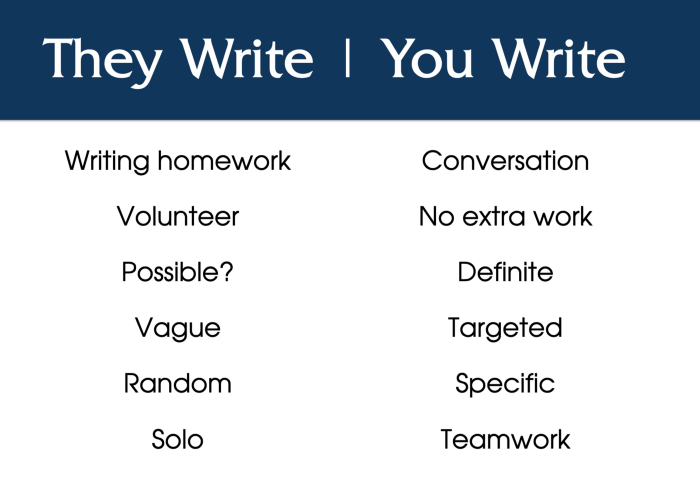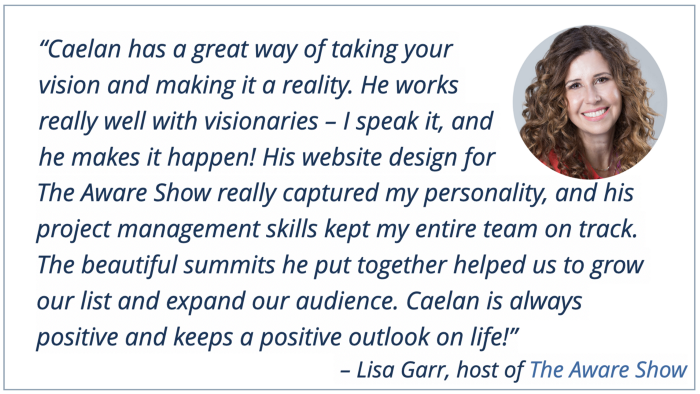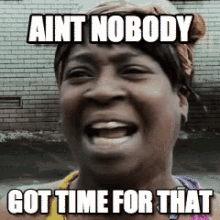Don’t ask clients to do extra work to promote your business
At the end of a long project, I asked my client for a testimonial. She said she would be happy to give me one. Her exact words were, “I would be honoured.” So I was surprised when she ghosted me.
After a couple of weeks, nothing happened. I sent a gentle email reminder, and then another a month later.
We had a great working relationship. Our paths diverged after years of producing successful tele-summits together. I thought we left on very good terms until I asked her for a testimonial.
My imposter syndrome kicked in. I felt all this new anxiety around my work. Maybe she didn’t like it, and didn’t want to tell me? Maybe she secretly hated everything I did? I was spinning out in panic until I realised: I was asking her to volunteer her time to promote my business.
Writing Testimonials Is Extra Homewor
72% of consumers say that positive reviews increase their trust in a business. Up to 88% of people say they trust online reviews as much as a personal recommendation. Testimonials increase your credibility and your closing rate, but they can be difficult to collect.
When you ask a happy customer to give you a testimonial, they often get tongue-tied. How do you articulate the specific reasons why you chose to do business with someone? How can you present those ideas clearly, in a way that makes you both look good? Giving good testimonials is a delicate art. And it often takes time, energy, and creativity away from other projects.

Many of the testimonials on my testimonials page would never have happened if I asked my clients to do all the work. Some are forgetful, or extremely busy, and wouldn’t respond to a testimonial request. A few of my all-time best testimonials came from non-responsive people. I developed a process to collect testimonials with a conversation.
When someone else writes a testimonial for you, they are volunteering to do extra homework on your behalf. It’s possible they will give you a vague testimonial, on random topics that they happen to think about.
When you write the testimonial, you’re just having a conversation, which is very easy work for them. It’s definitely going to happen, because you have them on the phone, and you are doing the hard work on the two-person team. Most importantly, by guiding the conversation, you can frame it around the specific topics that you want them to talk about.
Inviting a Testimonial Interview
I contacted my former client, Lisa Garr, and asked her to schedule a 15-minute phone call. “I’d like to ask you a few questions about your experience working with me,” I said.
“And I will take a bunch of notes. Then I’ll edit these notes into a tidy little paragraph, and send it over to you for review. If you think it looks good, you can approve it, and I’ll use that as the testimonial. If there are any edits you’d like to make, you can just reply to my email.”
She instantly agreed. We had a great conversation, and this was the testimonial she gave me:

With creative control of the testimonial, I was able to highlight three specific skills: website design, project management, and a positive attitude. She may not have mentioned these skills, or the impact they had on her business if I asked her to write the testimonial herself.
She used the phrase “helped us grow our list and expand our audience” to answer a different question. I distilled my notes from our conversation down to the best phrases, to capture her intent in beautiful language.
By providing that editing effort on her behalf, I was being courteous to my client. She could preserve her time and effort for her own work, instead of expending her energy on doing me a favour.
Distilling is a process that refines something down to its component elements. When you distill alcohol, you separate it from all other impurities. If you boil at very precise temperatures, you can evaporate the alcohol (and only the alcohol) and capture it. The distillation process separates the essence you want from the sludge where it is trapped.
That’s what the testimonial interview is like: a distillation process. You collect a lot of material in an interview, and before you share it with the world, you refine it into the purest essence that you can.
Can you imagine if a news reporter just invited people to step in front of a camera and start telling the world whatever they think is important?

News Reporters Collect Highlights
When you watch the news, a good reporter can quickly convey the main points of a story with multiple interviews. They interrupt their own monologue with short snippets of other people talking. The reporter might film long interviews with people involved in the story, but they don’t share the conversations in their entirety. All you see is a clip or a phrase from each interview. The short excerpts combine to create a rapid series of ideas and perspectives.
This editing technique can convey highly complicated information in less than a minute. You can do the same with your own testimonials if you treat the production of your testimonials like a news reporter.
To make a good story, a news reporter doesn’t let people wander in off the street and start talking to the camera. They ask a series of questions to uncover one or two good soundbites, and they use those clips on-air. It might take five minutes of footage to get a good six seconds. After spending time interviewing someone on camera, the reporter goes into the editing bay. They slice and dice the interviews to distill them down to their essence.
Five-Step Testimonial Interview Plan
1. Identify The Testimonial Prompt
Whenever I hear someone say both “wow,” and “thank you,” that is my cue to ask for a testimonial. Anytime someone expresses appreciation for my work, and they say any kind of combination of those two phrases, I go right into my script.
Is there a specific moment in your customer journey when your customers are most likely to give you a testimonial? Put “ask for testimonial” into your Customer Journey Map.
2. Prepare a Script in Advance
If you have memorised what you are going to say, then you won’t be tongue-tied when the time comes. You can just recite what you have prepared for this moment. Here’s what I say:
“Thanks so much, I’m glad you like my work. I’ve really enjoyed working on this project with you. Could I ask you a few questions, to get a testimonial from you about what it’s like to work with me?”
3. Have Your Questions Ready
These are the questions I use in my Testimonial Workbook:
- Tell me your elevator pitch, so I can attribute your testimonial correctly.
- How do you remember the two of us starting to do business together?
- What was the reason you chose to work with me?
- Was price the most important factor in your decision, or something else?
- Tell me about the experience of working with me.
- If someone called you and asked if they should do business with me, what would you tell them?
These questions should be presented in this order to get your customer to open up, and to share deeply. Most of your best material will come as answers to questions 4–6.
4. Take Notes
If you can write fast, I find that written notes are the easiest way to review and highlight. But if you want to be sure you don’t miss anything, record the audio or video of the conversation so you have a clear record. You can even get a transcription of the audio to generate a big block of text from which you can copy and paste.
5. Edit Your Testimonial
What phrases did your customer use to describe you? How did they describe their problem? What did they say to justify their experience?
These phrases, in your customer’s voice, are going to be powerful for your future customers to read. The way they phrase these things is different than the way you phrase them.
Try and create a natural progression of the best phrases. For a little while, it will seem like a word salad. You will spend a lot of time moving your favourite phrases around, continually deciding what to cut.
Remember this: less is more. A decent 12-word testimonial is more effective than a powerful three-paragraph testimonial. People will read all of a short testimonial, but they will skim a long one.
6. Send For Approval
After you have completed your composition, send it to your customer for review. Offer them the chance to edit, or to send you a quick “looks great” as approval.
7. Save The Testimonial On Your Website
One of the first things I do with new marketing clients is set up a testimonials page on their website if they don’t already have one. Having a single point of reference for all my testimonials has been such a time-saver. Anytime I produce a new piece of marketing collateral, I can just go to my website to find the one I want.
You can only get a library of testimonials if you start stocking the shelves. Make a plan and a process for collecting testimonials from every happy customer. Over time, your effort will compound into higher credibility and easier sales.
This article is an excerpt from my book, ‘Marketing Yourself.’ You can read the whole book here.





![Educate yourself before AI educates you [Now Enrolling – AI-Powered Professionals]](https://caelanhuntress.com/wp-content/uploads/2025/04/educate-yourself-featured-500x383.png)
Leave A Comment